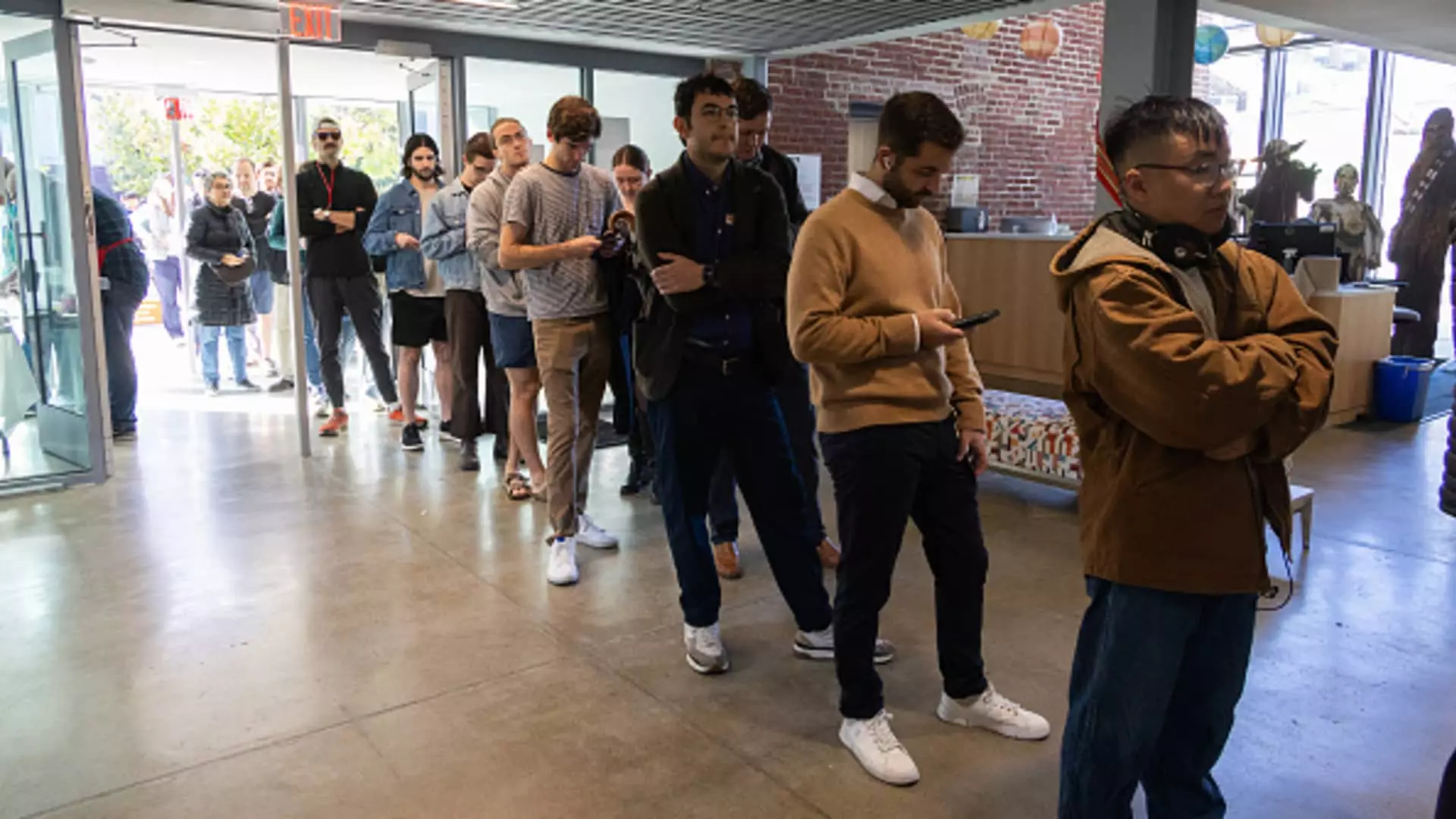As the United States embarks on the journey of a new electoral cycle, the divisions within its electorate have never been more pronounced. Among the most striking of these divides is the gender gap, which was vividly highlighted in the 2024 election results, where women largely supported Vice President Kamala Harris, while men gravitated towards President-elect Donald Trump. This complex interplay of demographics and political affiliation not only reflects current sentiments but also reveals deeper issues surrounding gender, economy, and societal expectations.
The statistics from NBC News exit polls paint a compelling picture: women favored Harris by an 8-point margin, with her garnering 53% of their support compared to Trump’s 45%. In contrast, men endorsed Trump by a striking 13-point margin, leading to a staggering 21-point overall gender gap. Such figures suggest an urgent need to dissect the factors driving these stark preferences among men and women voters.
A significant factor contributing to this gender divide appears to be economic discontent among male voters. The Trump campaign successfully appealed to men—particularly those of Hispanic and Black backgrounds—by addressing feelings of economic stagnation. Many men expressed dissatisfaction with their prospects for upward mobility, revealing a concerning trend: a growing number of men are withdrawing from the workforce, especially those in their prime working years.
Julia Pollak, chief economist at ZipRecruiter, highlights that men are feeling increasingly disillusioned with the new economic landscape, where traditional blue-collar jobs, once the backbone of many families, are fading due to automation and globalization. This disillusionment often breeds insecurity, prompting some men to align with a platform that promises to revitalize the economy despite its flaws.
One cannot ignore the educational disparity that is likely influencing voting behaviors. Recent Pew Research findings reveal that educational attainment among women is outpacing that of men, with 47% of women aged 25 to 34 holding bachelor’s degrees compared to only 37% of their male counterparts. This educational gap raises significant questions about the long-term societal implications of a generation of men falling behind in higher education and employability skills.
Adding to this is the cultural narrative revolving around education as a means of securing better career prospects. The societal emphasis on obtaining a four-year degree often marginalizes alternative vocational paths, making it harder for men without a college education to find gainful employment. The lack of accessible training programs exacerbates feelings of being “left behind,” leaving many men adrift in a rapidly evolving job market.
Recent studies have brought to light the alarming rise in NEETs—those not in employment, education, or training—among young men. This demographic has been particularly hard-hit by the decline of the manufacturing sector and the adverse effects of globalization. According to Richard Fry, a senior researcher at Pew, these young men are more likely to feel undervalued and disheartened, leading to decreased participation in the labor force. The ideology that merit and hard work lead to success has faltered for many in this group, ultimately manifesting in lower voting turnouts and reduced civic engagement.
In contrast, women voters are making strides in educational and professional realms, often prioritizing their careers and delaying traditional life milestones such as marriage and childbearing. This shift in focus speaks volumes about the changing landscape of gender roles in society.
While reproductive rights have been a critical issue in the 2024 election, they did not significantly mobilize women voters. Data suggests that more pressing matters surrounding economic stability and systemic inequality resonated more deeply with many constituents. Women, despite having made great gains in education and employment, continually seek proactive government interventions on issues such as affordable childcare, equal pay, and job security.
As Fatima Goss Graves, president of the National Women’s Law Center Action Fund, pointed out, the concerns about economic hardship are real and valid. She cautions against assuming that women will retreat from advocacy efforts post-election. The struggle for equality and basic rights will persist, as legislative changes often require ongoing grassroots efforts.
The gender gap in voting during the 2024 election is a reminder of the multifaceted challenges facing American society. While division seems rampant, understanding the underlying economic and cultural dynamics can pave the way for more inclusive solutions. Addressing the disparities in educational and economic opportunities will be crucial in uniting a fractured electorate, reinforcing the need for collective action that transcends gender lines.
As we navigate this complex political landscape, it is imperative that both men and women are heard, respected, and represented in discussions that shape the policies impacting their lives and futures. Only through understanding and addressing the root causes of discontent can we hope to bridge the divisive gaps that threaten the very fabric of our democracy.


Leave a Reply